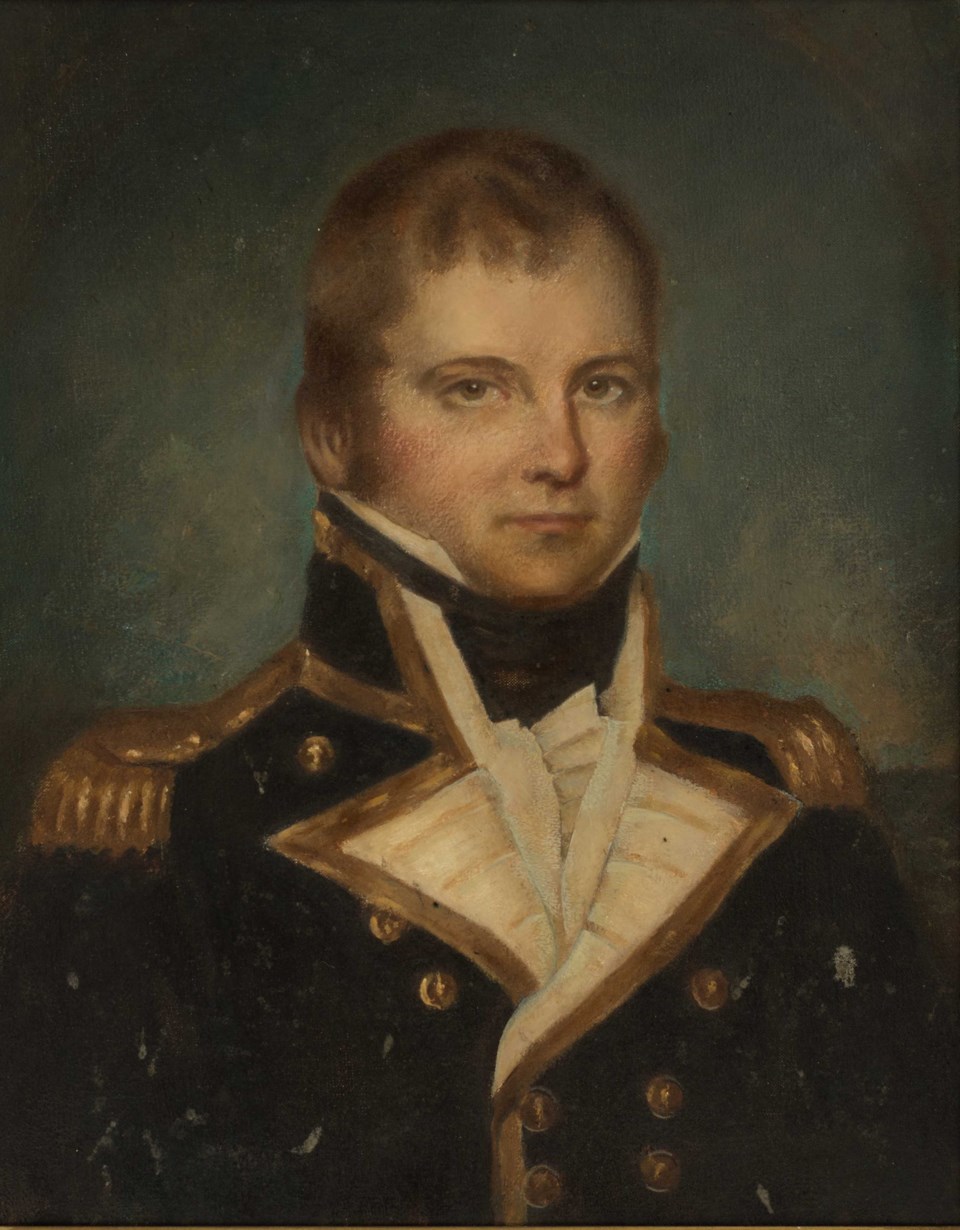Barrie’s namesake could be getting new life 180 years after his death.
The city is being asked to declare June 7 as Sir Robert Barrie Day on an annual basis.
“It is always a good idea to celebrate our heritage and teach residents about the person our city is named after,” said Deputy Mayor Barry Ward. “Sir Robert Barrie had quite an interesting life, both as a military commander and administrator in what later became Canada.
“June 7 marks both the anniversary of his death and the anniversary of the signing of the city’s agreement to make Harrogate (North Yorkshire, England,), where he is buried, a twin city (of Barrie)," Ward added.
Councillors will consider a motion Monday night to declare June 7 as Sir Robert Barrie Day in his honour.
Ward said the request comes from Barrie’s international relations committee.
Should this motion be approved and given final approval by council at its May 31 meeting, Harrogate’s flag will be raised in the Barrie City Hall courtyard on June 7.
“Unfortunately, the pandemic has put everything on hold for more than a year,” Ward said. “That’s one reason I think it is important to mark Sir Robert Barrie Day this year; it is one of the few things we can do as a committee and it helps to remind Barrie residents about these great international partnerships we have.
“Sir Robert Barrie Day is also something we can build on for the future," the deputy-mayor added.
Bill Sergeant is with the Sir Robert Barrie Project committee and its purpose is to promote the history of this city's namesake.
“By having city council proclaim June 7 as Sir Robert Barrie Day, it will help make the citizens of our great city aware of what he did to fend off American aggression during the War of 1812 and his role in saving lives during the cholera pandemic of the 1830s in the Kingston area,” Sergeant said.
“Canadians tend to look abroad for heroes, but our city has a true hero of its own. It is time that he gets the credit that he is due," he added.
Rear Admiral Sir Robert Barrie commanded HMS Dragon in Chesapeake Bay, off the coast of Maryland and Virginia, and sank, captured or destroyed 85 American vessels during the War of 1812.
His actions caused the Americans to transfer some of their navy from the Great Lakes and concentrate more of their forces to the Chesapeake Bay area to counter the threat posed by Barrie’s squadron to the American capitol. This in turn took the pressure off of the British forces and Canadian militia in Upper Canada.
In January 1824, Commodore Barrie took up the post of commissioner of the Naval Dockyard at Kingston in what was then known as Upper Canada. As such, he was the senior naval officer in the Canadian colony.
He was instrumental in developing the facilities at Kingston, as well as supporting the building of the Rideau and Welland canals.
During his time in Canada, he had come to the Barrie area to inspect the Nine Mile Portage, a key trading route from Kempenfelt Bay to the Nottawasaga River and Georgian Bay.
Lady Julia Wharton-Ingilby, Barrie's wife, thought the area at the end of Kempenfelt Bay was one of most beautiful places on Earth and suggested they settle here.
In 1833, the area was named Barrie in his honour.
About the same time, Asiatic cholera became pandemic. So rapid was its spread that the first case in the United Kingdom was diagnosed in the port of Sutherland on Oct. 31, 1831. The disease gained entry to Canada on ships as navigation opened on the St. Lawrence River.
Infected immigrants landed at Quebec, Montreal, Kingston and York, where the cholera assumed epidemic proportions. Of these cities, Kingston escaped lightly compared with the two major centres of Lower Canada.
Commodore Barrie’s presence in Kingston in 1832 played no small part in reducing fatalities.
Long familiar with the ravages of contagious disease when closely confined within a ship, he ordered a strict quarantine at this critical moment. However, in 1834, Asiatic cholera returned more grimly than before. The admiralty in the United Kingdom closed down Kingston’s naval establishment, which ended Barrie’s many years of service in Canada.
Commodore Barrie and his officers, marines and seamen departed for England a scant two weeks before cholera broke out again in Kingston.
In June 1834, Barrie returned to England and King William IV made him a Knight Commander of the Royal Guelphic Order. He was promoted to rear admiral in 1837 and Knight Commander of the Order of the Bath in 1840.
Barrie lived in retirement in Swarthdale, Lancashire and died on June 7, 1841.
His final resting place is in All Saints Church in the shadow of Ripley Castle in Harrogate.
— With files from the Sir Robert Barrie Project committee
